London-based Taiwanese chef Chang Er-chen (張爾宬) has had a year to remember. As well as being named one of the coolest female chefs in the British capital by Time Out magazine, her new restaurant, Xu (許儒華苑), has earned rave reviews in the national press, while diners have been lining up around the block to get into her award-winning concept restaurant Bao.
Not bad for someone whose culinary skills are largely self-taught and whose burgeoning group of eateries, set up with, respectively, brother and sister Chung Shing-tat (鍾承達) and Chung Wai-ting (鍾慧婷), began with a pop up selling guabao (Taiwanese pork belly buns, 割包) in a street market.
Chang, who hails from Taipei, arrived in the UK aged 14 to attend boarding school before studying at the Slade School of Fine Art. A trip home with co-chef Shing-tat, who is now her husband, provided the inspiration for their culinary adventure.
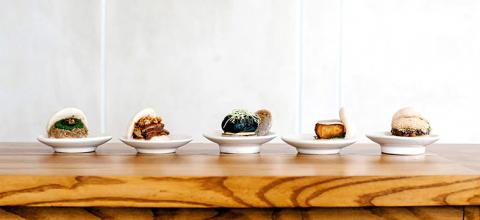
Photo courtesy of Chang Er-chen
“After university we went back to Taiwan to travel and fell in love with guabao,” Chang says. “After we came back we began testing bao recipes and started doing pop ups. We just really wanted to bring this amazing Taiwanese food to London and share our love of it.”
The transition from art student to chef was not as drastic as one might think, as the Chungs’ Hong Kong-born parents were restaurateurs in Nottingham in central England.
“Shing and Ting grew up living above their family restaurants. They have always had dreams of owning their own place. I grew up in Taipei in a family where food was an important part of life,” Chang says.
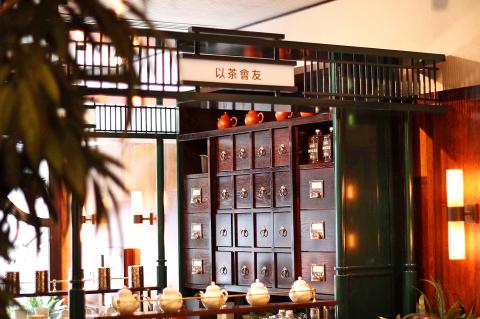
Photo courtesy of Chang Er-chen
Her art studies were put to good use when the trio opened their first stall, and have subsequently played an important part in the design of their more ambitious recent projects.
“When we first started we made everything — from the food, to the stand, to the aprons and light box, similar to what we used to do in art school,” Chang says. “It is the materializing of a street food stand, a restaurant, that excites us and that’s not too dissimilar to creating art.”
In 2015 Chang and the Chungs launched Bao in Soho, the heart of London’s bar and restaurant scene. Its simple but stylish interior and short guabao-based menu has proved so successful that there is now another branch as well as a host of imitators.
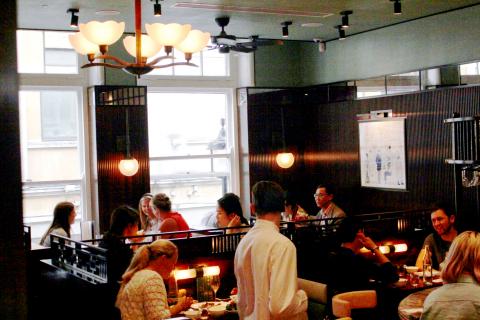
Photo courtesy of Chang Er-chen
“Taiwanese food was certainly not known at that time but now everybody knows what bao is, which I’m very happy with,” Chang says. “I want to push more Taiwanese culture through food and restaurants.”
She’s done a good job so far — no mean feat in a country with a relatively small Taiwanese expat community and only a handful of Taiwanese restaurants.
Googling her name reveals a host of articles extolling the joys of the likes of oyster congee and taro root, not only in London’s press but in the main quality national newspapers, as well as specialty food and catering publications.
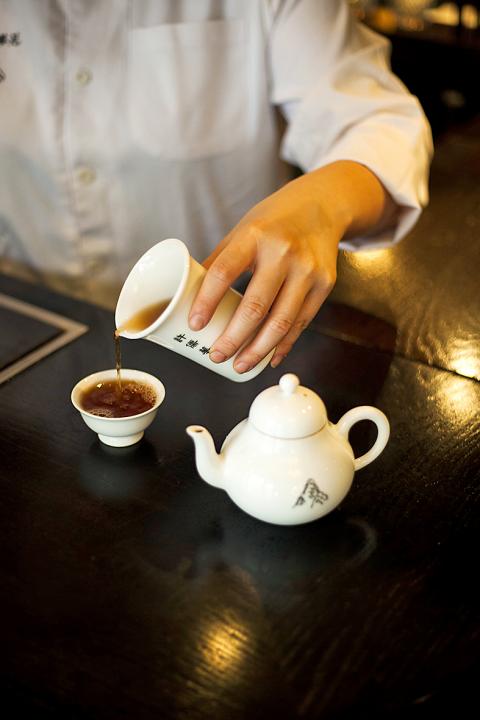
Photo courtesy of Chang Er-chen
Her latest venture, Xu, is a more sophisticated venue and offers Londoners a uniquely Taiwanese dining experience. Billed as a “cinematic reinterpretation of 1930s Taipei” Xu describes itself as “theatrical yet relaxed” and incorporates a tea room, dining room and mahjong rooms.
Chang’s artistic background is evident in the restaurant’s interior, featuring hand-painted murals, wooden ceiling fans and a marble bar with pink leather seats. As well as Michelin-star quality local produce, tea imported from Taiwan features prominently on the menu. Xu has a dedicated tea kiosk and its own tea master, something else that helps it to stand apart from its neighbors in London’s Chinatown.
Chang has tried to keep dishes as authentic as possible, with the likes of pig’s blood cake and century egg featured on the menu. Even stinky tofu could be set for an appearance.
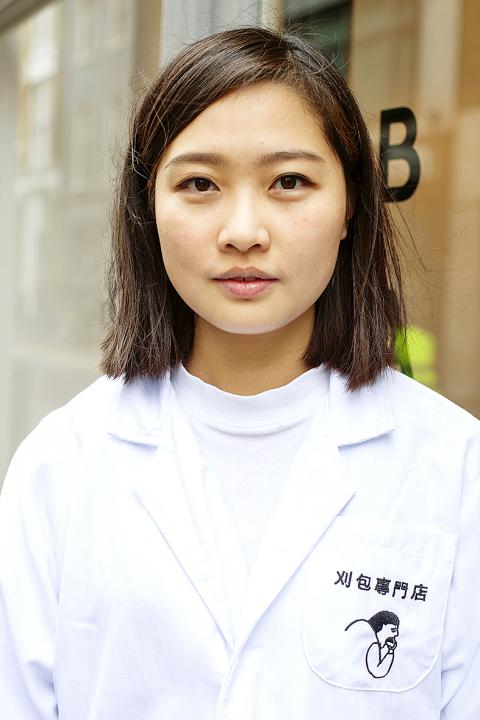
Photo courtesy of Chang Er-chen
“I think stinky tofu will be very popular in London, to be honest,” Chang says. “Londoners are so open to different regional food at the moment. People are waiting for new excitements all the time. We just need a big enough space to make it.”
Testament to Chang’s success in creating an authentic dining experience at both Bao and Xu comes from the high number of Taiwanese expat customers and their positive feedback.
Her success has had one downside, however, as Chang now has less time for trips home to Taiwan.
“I used to go back once or twice a year but now with three restaurants I’m finding less and less time to go,” she says.
“But I have my family in Taiwan and have many Taiwanese chefs or front of house staff that go to Taiwan frequently, so I do continue to source and get amazing Taiwanese produce such as aged white soy, aged pomelo tea, sesame oil and tea tree oil.”

Desperate dads meet in car parks to exchange packets; exhausted parents slip it into their kids’ drinks; families wait months for prescriptions buy it “off label.” But is it worth the risk? “The first time I gave him a gummy, I thought, ‘Oh my God, have I killed him?’ He just passed out in front of the TV. That never happens.” Jen remembers giving her son, David, six, melatonin to help him sleep. She got them from a friend, a pediatrician who gave them to her own child. “It was sort of hilarious. She had half a tub of gummies,

June 23 to June 29 After capturing the walled city of Hsinchu on June 22, 1895, the Japanese hoped to quickly push south and seize control of Taiwan’s entire west coast — but their advance was stalled for more than a month. Not only did local Hakka fighters continue to cause them headaches, resistance forces even attempted to retake the city three times. “We had planned to occupy Anping (Tainan) and Takao (Kaohsiung) as soon as possible, but ever since we took Hsinchu, nearby bandits proclaiming to be ‘righteous people’ (義民) have been destroying train tracks and electrical cables, and gathering in villages

The wide-screen spectacle of Formula One gets a gleaming, rip-roaring workout in Joseph Kosinski’s F1, a fine-tuned machine of a movie that, in its most riveting racing scenes, approaches a kind of high-speed splendor. Kosinski, who last endeavored to put moviegoers in the seat of a fighter jet in Top Gun: Maverick, has moved to the open cockpits of Formula One with much the same affection, if not outright need, for speed. A lot of the same team is back. Jerry Bruckheimer produces. Ehren Kruger, a co-writer on Maverick, takes sole credit here. Hans Zimmer, a co-composer previously, supplies the thumping

Swooping low over the banks of a Nile River tributary, an aid flight run by retired American military officers released a stream of food-stuffed sacks over a town emptied by fighting in South Sudan, a country wracked by conflict. Last week’s air drop was the latest in a controversial development — private contracting firms led by former US intelligence officers and military veterans delivering aid to some of the world’s deadliest conflict zones, in operations organized with governments that are combatants in the conflicts. The moves are roiling the global aid community, which warns of a more militarized, politicized and profit-seeking trend